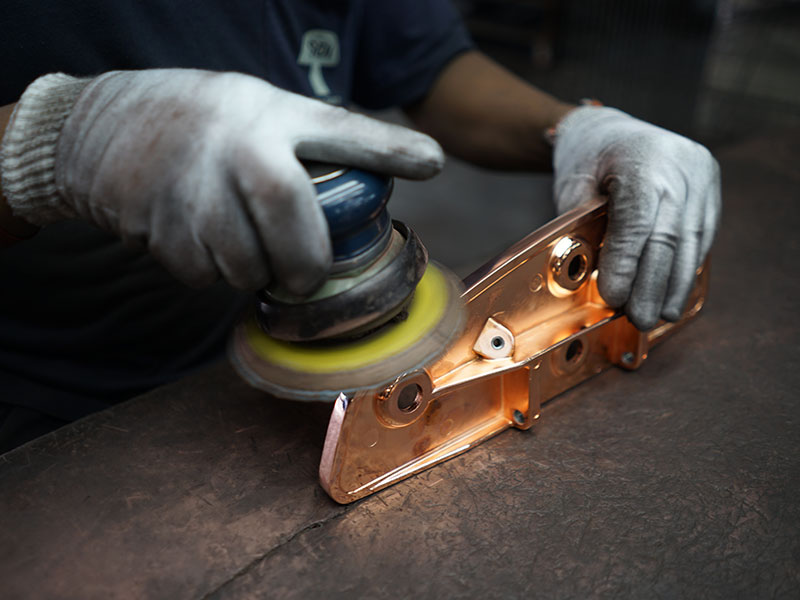The Growing Significance of Diecasting in Malaysia
BusinessDiecasting in Malaysia has become an essential part of the country’s manufacturing sector, contributing significantly to various industries, including automotive, electronics, and consumer goods. This process, which involves injecting molten metal into a mold at high pressure, allows for the creation of detailed and precise metal components that are used across a wide range of products. Over the years, Malaysia has gained a reputation as a key player in the diecasting industry, not only in Southeast Asia but also on the global stage. This growth is due to the country’s strategic location, investments in technology, and highly skilled workforce, all of which have positioned Malaysia as a hub for quality diecast products.
One of the most significant drivers of the diecasting industry in Malaysia is the automotive sector. Automotive manufacturers rely on diecasting to produce critical parts such as engine components, transmission housings, and structural elements. These parts are essential for reducing the overall weight of vehicles while maintaining strength and durability, key factors in improving fuel efficiency. As the global automotive industry pushes towards electric vehicles and more environmentally friendly transportation solutions, the demand for lightweight yet robust diecast components has surged. Malaysia, with its established manufacturing base and access to cutting-edge technology, is well-positioned to meet this demand, making it an attractive location for automotive companies seeking quality diecast parts.
The electronics sector is another major contributor to the growth of the diecasting industry in Malaysia. The country is a leading exporter of electronic components, and diecasting plays a crucial role in the production of these items. Diecast parts are commonly used in the manufacturing of electronic housings, heat sinks, and structural components that require high levels of precision. With the rise of smart devices, the Internet of Things (IoT), and advanced consumer electronics, the need for durable and intricate metal components has grown. Malaysian manufacturers are meeting these demands by adopting advanced diecasting techniques that incorporate automation, robotics, and precision engineering, ensuring that they can produce high-quality components efficiently and at scale.
The technological advancements that have taken place in the diecasting industry have been crucial to Malaysia’s success in this field. Manufacturers in Malaysia have invested heavily in state-of-the-art diecasting equipment, which includes high-pressure machines, computer-aided design (CAD) software, and automation technologies. These tools have allowed companies to improve production efficiency, reduce waste, and produce more complex parts with greater precision. Furthermore, innovations in materials, particularly the increased use of aluminum and magnesium alloys, have enhanced the performance of diecast products. These lightweight metals are highly sought after in industries such as automotive and electronics, where the reduction of weight without compromising strength is critical.

Malaysia’s diecasting industry has also been bolstered by the country’s skilled workforce. A strong focus on education and technical training has ensured that Malaysian workers are well-equipped to handle advanced die casting company Malaysia technologies and processes. Universities and technical colleges across the country offer specialized courses in engineering and manufacturing, creating a talent pool that is ready to support the needs of the industry. This emphasis on skill development, combined with government initiatives to promote research and development in diecasting, has enabled Malaysia to stay competitive in the global market. The commitment to building a skilled workforce has been a key factor in attracting foreign investment and positioning Malaysia as a hub for high-quality manufacturing.
Sustainability has become a growing focus for the diecasting industry in Malaysia. Diecasting itself is an efficient process that produces minimal waste, and the metals used in diecasting, such as aluminum, are highly recyclable. Many Malaysian manufacturers are adopting green practices to further minimize their environmental footprint. These practices include using energy-efficient machinery, implementing closed-loop recycling systems, and reducing emissions during production. As sustainability becomes an increasingly important factor for global industries, Malaysia’s commitment to eco-friendly manufacturing practices gives it an edge in the diecasting sector, attracting companies that prioritize environmental responsibility.
In conclusion, the diecasting industry in Malaysia is poised for continued growth and innovation. The country’s strategic focus on key sectors such as automotive and electronics, coupled with technological advancements and a skilled workforce, has solidified its position as a leader in diecasting. As global demand for high-quality, lightweight, and sustainable metal components continues to rise, Malaysia is well-positioned to meet these needs. The future of diecasting in Malaysia looks bright, with further investment in technology and a commitment to sustainability ensuring the industry’s long-term success and global competitiveness.
